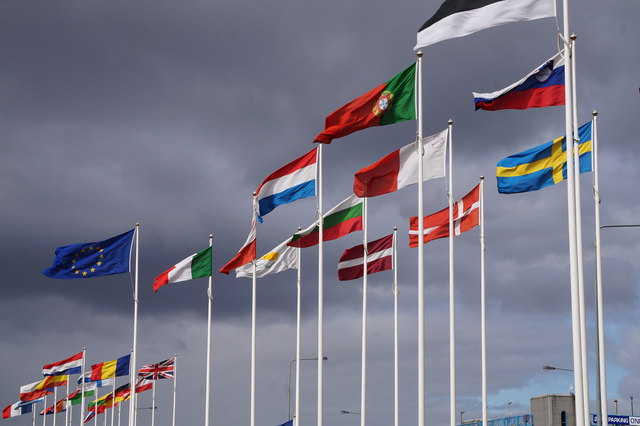A new winter term is rearing its head. Winter terms in Germany are … special. They regularly come with dreary weather and unpredictable commutes in the dark, and this year’s special offer includes a possibility of new Covid strains and just a chance of Armageddon.
But I’m really looking forward to the new reading class (my favourite form of academic teaching) that I have set up for a fresh bunch of MA students. I have updated my old course on populism, euroscepticism and foreign policy attitudes (which was more centred on Catherine De Vries’s then-new monograph). The new list includes even more recent journal articles, because this is what we want our MA students to be able to digest. Not everything on the list is necessarily 100 per cent brilliant, but everything is interesting and relevant. Plus: identifying weak(-ish) points in top-notch research is an important skill for students (at least that is what I think).

Here is the full list. Feel free to use or adapt it for your own courses, or just as a collection of potential starting points.
- The structure of foreign policy attitudes: Gravelle, Timothy B., Jason Reifler, and Thomas J. Scotto. 2017. “The Structure of Foreign Policy Attitudes in Transatlantic Perspective. Comparing the United States, United Kingdom, France and Germany.” European Journal of Political Research 56 (4): 757–76. doi:10.1111/1475-6765.12197.
- Personality and foreign policy attitudes: Rathbun, Brian C., Joshua D. Kertzer, Jason Reifler, Paul Goren, and Thomas J. Scotto. 2016. “Taking Foreign Policy Personally: Personal Values and Foreign Policy Attitudes.” International Studies Quarterly 60 (1): 124–37. doi:10.1093/isq/sqv012.
- Threat, fear, anger, and Russia: Kupatadze, A., and T. Zeitzoff. 2019. “In the Shadow of Conflict: How Emotions, Threat Perceptions and Victimization Influence Foreign Policy Attitudes.” British Journal of Political Science 51 (1): 181–202. doi:10.1017/s0007123418000479.
- Public opinion and International Organisations: De Vries, Catherine E., Sara B. Hobolt, and Stefanie Walter. 2021. “Politicizing International Cooperation: The Mass Public, Political Entrepreneurs, and Political Opportunity Structures.” International Organization 75 (2): 306–32. doi:10.1017/s0020818320000491.
- EU support and individual benefit: Gabel, Matthew. 1998. “Public Support for European Integration. An Empirical Test of Five Theories.” Journal of Politics 60: 333–54.
- EU support and cultural threat: McLaren, Lauren M. 2002. “Public Support for the European Union: Cost/Benefit Analysis or Perceived Cultural Threat.” The Journal of Politics 64: 551–66.
- Populism as an attitude: Akkerman, Agnes, Cas Mudde, and Andrej Zaslove. 2014. “How Populist Are the People? Measuring Populist Attitudes in Voters.” Comparative Political Studies 47 (9): 1324–53. doi:10.1177/0010414013512600.
- Euroscepticism and voting for the Far Right: McDonnell, Duncan, and Annika Werner. 2018. “Differently Eurosceptic: Radical Right Populist Parties and Their Supporters.” Journal of European Public Policy, 1–18. doi:10.1080/13501763.2018.1561743. & Werts, Han, Peer Scheepers, and Marcel Lubbers. 2012. “Euro-Scepticism and Radical Right-Wing Voting in Europe, 2002-2008: Social Cleavages, Socio-Political Attitudes and Contextual Characteristics Determining Voting for the Radical Right.” European Union Politics 14 (2): 183–205. doi:10.1177/1465116512469287.
- (Il)Liberal-democratic attitudes and euroscepticism: Brug, Wouter van der, Sebastian Adrian Popa, Sara B Hobolt, and Hermann Schmitt. 2021. “Illiberal Democratic Attitudes and Support for the EU.” Politics 41 (4): 537–61. doi:10.1177/0263395720975970.
- Generational effects, crises, and EU support: Lauterbach, Fabian, and Catherine E. De Vries. 2020. “Europe Belongs to the Young? Generational Differences in Public Opinion towards the European Union during the Eurozone Crisis.” Journal of European Public Policy 27 (2): 168–87. doi:10.1080/13501763.2019.1701533.
- Brexit effects in other EU countries: Hobolt, Sara B., Sebastian Adrian Popa, Wouter van der Brug, and Hermann Schmitt. 2021. “The Brexit Deterrent? How Member State Exit Shapes Public Support for the European Union.” European Union Politics 23 (1): 100–119. doi:10.1177/14651165211032766.
- Who in CEE would want to leave the EU: Gherghina, Sergiu, and Paul Tap. 2022. “Conservatism, Social Isolation and Political Context: Why East Europeans Would Leave the Eu in Exit Referendums.” International Political Science Review online first. doi:10.1177/01925121211061453.


Reposts
Likes